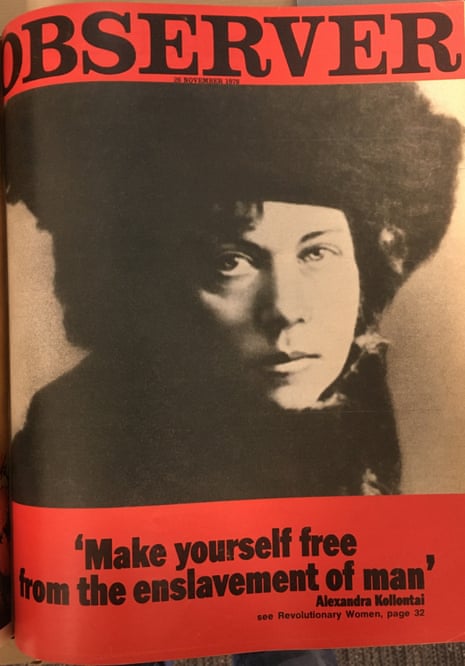‘Today’s revolutionary feminists are not without precedent,’ the Observer noted in 1976, placing second-wave feminism in its historical context with a tribute to women who fought ‘for political and for socio-sexual revolution’. (The article was written by a man.)
Implacable opponent of China’s Manchu regime Ch’iu Chin (1875-1907) ‘rode horses astride, excelled in sword fighting, made bombs, drilled women fighters, organised secret armies’. She devoted much of her energy to the plight of women, founding a feminist newspaper and protesting against enforced marriage, concubinage (‘truly a hell on earth’) and foot binding.
Her revolutionary career culminated when she ‘singlehandedly masterminded the insurrection of an entire province’. It failed; she was tortured and executed, greeting her death sentence with a line of poetry: ‘Autumn rain and autumn wind will make me die of sorrow.’
Louise Michel (1830-1905), heroine of the 1871 Paris Commune, was radicalised by witnessing the army fire on Parisians as they protested against the regime’s capitulation in the Franco-Prussian war. ‘How she wasn’t killed 100 times under my eyes, I don’t understand,’ statesman Georges Clemenceau said admiringly of her frontline fighting in the months that followed, and especially during ‘Bloody Week’ in May. Captured and deported to New Caledonia, ‘She looked like an old peasant woman, worn out by working the soil,’ on her return nine years later, but stopped traffic at Saint-Lazare station where a crowd chanted ‘Vive Louise Michel’; her funeral commanded the biggest crowds since Victor Hugo’s.
Alexandra Kollontai (1872-1952), was once described as one of ‘only two Communists in Russia’; the other was Lenin. But her goal of liberating women and forging a new sexual morality was too revolutionary even for the Bolsheviks. She managed to introduce some maternity provisions and helped draft laws legalising abortion before falling out of political favour. Frequently in love, and frequently disappointed, Kollontai dreamed of a new ‘solidarity-love’ and sex ‘as simple and as uncomplicated as drinking a glass of water’. Like the egalitarian society she dreamed of, it feels like we’re still waiting for that to happen.
